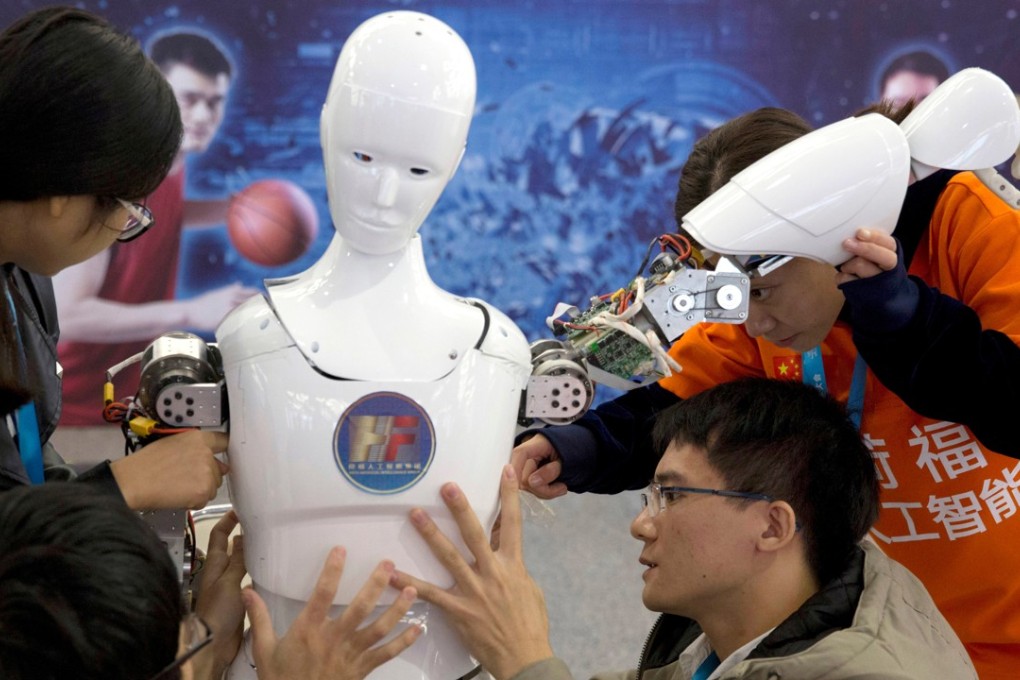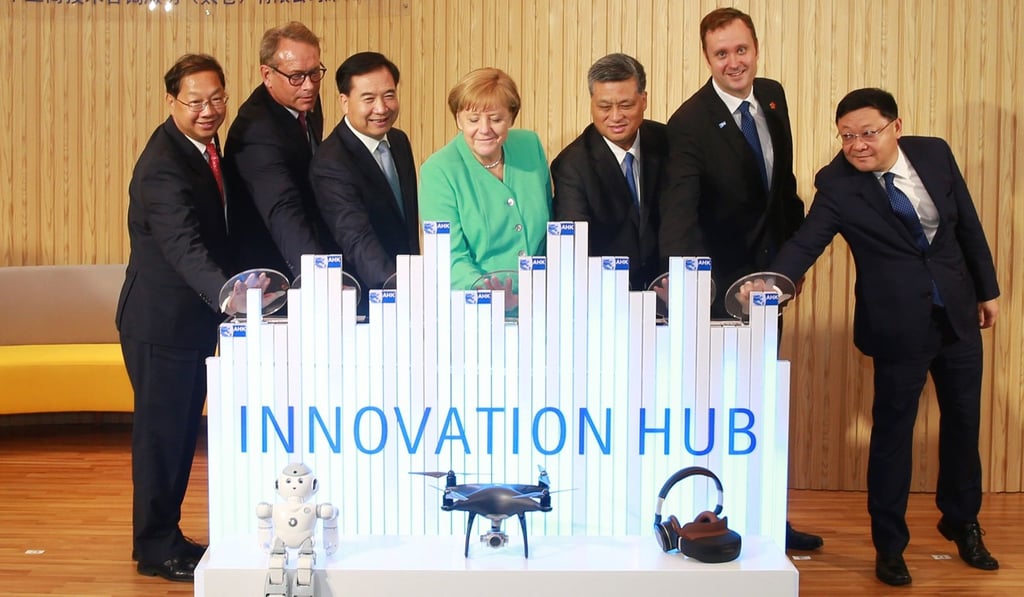Advertisement
Angela Merkel’s visit to Shenzhen proves China’s technology sector has arrived
Reading Time:1 minute
Why you can trust SCMP
0

German Chancellor Angela Merkel visited Shenzhen last week. Unlike her former visits to China, this time Merkel paid attention to the country’s high-technology development, so she chose Shenzhen as a key destination (“Angela Merkel visited innovative Shenzhen on her China trip. Will she stop in Hong Kong next time?”, May 27)
Could Germany learn science and technology from China? That would not only surprise the Chinese, but also most of the world.
World’s most valuable AI start-up SenseTime raises US$620 million
In the eyes of most people, including the Chinese, Germany is synonymous with advanced technology. Many Chinese, especially the young, admire German technology. “Made in Germany” holds special value for us and Germany has been seen as a global science teacher.
Watch: Facial recognition technology used by Shenzhen police to identify jaywalkers
However, the situation may have changed. China’s new technology sector has been developing very fast and drawn international attention, including that of Germany. Many German factories are located in Shenzhen; maybe Germany sees the city as a new Silicon Valley.
Merkel’s visit to Shenzhen is a great encouragement to China, indicating that China is no longer a “student” of Germany in science and technology, but a partner.

However, as Tencent CEO Pony Ma Huateng said, the ZTE affair revealed China’s weakness in fundamental research, and the ban on US firms supplying technology components to it was a wake-up call. Therefore, I believe China still has a long way to go if it wants to catch up with Germany.
Advertisement